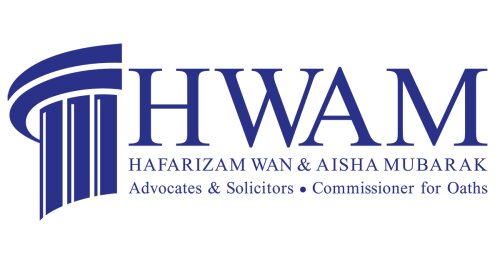Best Communications & Media Law Lawyers in Putrajaya
Share your needs with us, get contacted by law firms.
Free. Takes 2 min.
List of the best lawyers in Putrajaya, Malaysia
About Communications & Media Law in Putrajaya, Malaysia
Communications & Media Law in Putrajaya, Malaysia, governs all aspects related to the broadcasting, telecommunications, and digital media industries. It includes regulations from multiple regulatory bodies like the Malaysian Communications and Multimedia Commission (MCMC). This legal field addresses issues such as freedom of speech, censorship, intellectual property rights, privacy concerns, and the regulation of electronic commerce.
Why You May Need a Lawyer
Several circumstances might necessitate the assistance of a lawyer specializing in Communications & Media Law. These include legal disputes over media content, defamation claims, regulatory compliance for media and telecommunication companies, privacy violations, the protection of intellectual property, and negotiating contracts related to media distribution and licensing. Additionally, anyone facing charges of broadcasting without proper license or misleading advertising may require legal help.
Local Laws Overview
Putrajaya, as the federal administrative center of Malaysia, is directly influenced by national laws concerning communications and media. The key legislation includes the Communications and Multimedia Act 1998, the Content Code, and various guidelines issued by the MCMC. These laws regulate media licensing, broadcasting standards, internet services, privacy protection, and digital content distribution. Understanding these regulations is crucial for compliance and avoiding potential legal issues.
Frequently Asked Questions
What is the role of the Malaysian Communications and Multimedia Commission (MCMC)?
The MCMC is the regulator for the communications and multimedia industry in Malaysia, overseeing policies surrounding telecommunications, broadcasting, internet services, and postal services. It ensures compliance with relevant laws and standards to promote a competitive and secure environment.
Is censorship a significant concern in Malaysia?
Yes, censorship can be a concern. The government regulates content to maintain public order and security, which involves censoring materials deemed offensive or against societal norms, including certain political content, pornography, and violent media.
What are the licenses required for broadcasting in Malaysia?
Entities wishing to broadcast need specific licenses issued under the Communications and Multimedia Act 1998. These include Individual Licenses for network facilities and services and Class Licenses for applications services, content applications services, etc.
How do intellectual property rights apply to media content?
Intellectual property rights protect creators and owners of content. This includes copyrights for artistic works, patents for inventions, and trademarks for brand identifiers, ensuring that original content is safeguarded against unauthorized use.
What legal challenges might arise in digital media and online platforms?
Digital media can face issues like copyright infringement, data privacy violations, defamation lawsuits from online content, and challenges complying with local regulations on digital advertising and e-commerce.
How is defamation handled within the media law context?
Defamation law protects individuals and entities from unwarranted harm to reputation via the publication of false statements. In media, this can include both slander and libel, with remedies including retractions, apologies, and damages.
Are there specific privacy laws for telecommunications in Malaysia?
Yes, the Personal Data Protection Act 2010 governs privacy and data protection issues, ensuring that personal data used by service providers is handled with consent and proper security measures.
What are the consequences for non-compliance with communications regulations?
Non-compliance can result in heavy penalties, including fines, operational restrictions, and revocation of licenses, depending on the severity of the violation.
How can I resolve a dispute with a telecommunications service provider?
Disputes can often be resolved through negotiation or mediation; however, legal action might be necessary. The MCMC can also intervene in disputes related to unfair practices or breaches of service agreements.
What is the Content Code, and who must comply?
The Content Code outlines content standards for the broadcasting and online industries, requiring adherence from all service providers, ensuring content is appropriate, respectful, and not misleading.
Additional Resources
For further assistance, you can consider contacting the Malaysian Communications and Multimedia Commission (MCMC), which provides guidelines and information on regulatory compliance. The Bar Council Malaysia and Malaysian Intellectual Property Corporation (MyIPO) are also valuable resources for legal advice and intellectual property concerns.
Next Steps
If you need legal assistance in Communications & Media Law in Putrajaya, start by consulting with a lawyer who specializes in the field. Ensure they have a strong understanding of local laws and regulations. You can reach out to legal aid services or contact the Malaysian Bar for a list of qualified lawyers. Additionally, preparing relevant documents and understanding your specific legal needs will streamline consultations and advice.
Lawzana helps you find the best lawyers and law firms in Putrajaya through a curated and pre-screened list of qualified legal professionals. Our platform offers rankings and detailed profiles of attorneys and law firms, allowing you to compare based on practice areas, including Communications & Media Law, experience, and client feedback.
Each profile includes a description of the firm's areas of practice, client reviews, team members and partners, year of establishment, spoken languages, office locations, contact information, social media presence, and any published articles or resources. Most firms on our platform speak English and are experienced in both local and international legal matters.
Get a quote from top-rated law firms in Putrajaya, Malaysia — quickly, securely, and without unnecessary hassle.
Disclaimer:
The information provided on this page is for general informational purposes only and does not constitute legal advice. While we strive to ensure the accuracy and relevance of the content, legal information may change over time, and interpretations of the law can vary. You should always consult with a qualified legal professional for advice specific to your situation.
We disclaim all liability for actions taken or not taken based on the content of this page. If you believe any information is incorrect or outdated, please contact us, and we will review and update it where appropriate.










